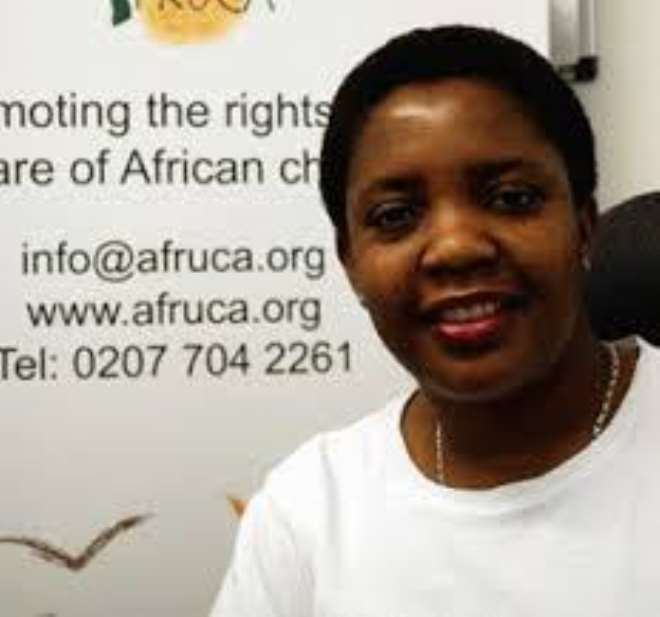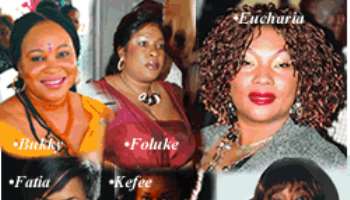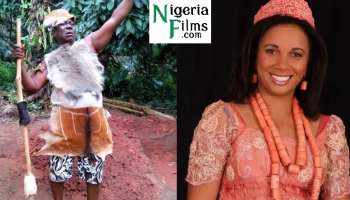Film Review: “October 1” And Child Sexual Abuse In Nigerian Boarding Schools
I confess that I am not a great fan of Nollywood. It is very rare for me to sit down and watch a Nollywood movie – the chief reason being the very low quality of the films. However, it was per chance that I stumbled upon an exception – the brilliant film by the brilliant Kunle Afolayan, called “October 1”. On a free evening, while searching on Netflix for a film to watch, the title came up. I clicked on it, and got hooked right from the start.
For those who haven't seen it, the film centres around the eve of Nigeria's independence on 1st October 1960. At that time, most institutions, including the police were still led by colonialists. The whole country is agog with joy at the prospect of independence. In the village of Akote, celebrations are also ongoing – coupled with the fact that the son of the King (Prince Aderopo) has just returned from the University of Ibadan where he has newly graduated with a Bachelor's degree.
However, the arrival of Prince Aderopo (Ademola Adedoyin) has brought with it a strange phenomenon. Village virgin women are being attacked, raped and killed with a cross etched on their bodies. A Senior Police Officer (“Inspector Waziri”, the delectable Sadiq Daba) is dispatched from Lagos to handle this strange case of serial murders in a Yoruba village. No one believes him when he reaches the conclusion that Prince Aderopo seems to be the culprit because his movements coincide with the murders.
The Prince and another village boy “Agbekoya” (Kunle Afolayan) have been two very bright boys in the village school. When the local priest and School Head father Dowling assists the two boys to gain admission to the famous Kings College, everyone is very pleased, especially the King. However, some months after they depart for Lagos, Agbekoya runs back to the village. He is very silent about his reasons for return, and most curiously decides to swap education for farming. He remains a recluse, refusing to mix with people in the village.
Prince Adekoya stays on at Kings College, passes his final exams with flying colours and proceeds to the University of Ibadan. He returns, a polished, suave and very good looking young man with eyes for the beautiful school teacher Tawa who has been his classmate at the village school. It seems like they are destined for each other until the Prince, luring her to a secluded place where he plans to rape and kill her – confesses to the gross sexual abuse and violation he and Agbekoya had gone through at the hands of father Dowling for the six years he was at Kings College.
Essentially, the issue of child abuse, especially the sexual abuse of boys is not one that Nigerians talk about. This is why I find this movie particularly inspiring. The key issue is the terrible impact that sexual abuse can have on a child. In the case of Agbekoya, he was forced to live through the shame of being raped night after night by the reverend father. Coming across his abuser years later, in the middle of the night, out of anger and rage, Agbekoya strangles him. In the case of Prince Aderopo, he is completely damaged because a total stranger was allowed to take control of his life, have free access to sexually abuse him, violate him, destroy his psyche, his life. His attack on the village women is his revenge on the world – the world that had completely failed him (“Six Akote virgins for all the pains I endured”).
This film has raised a very poignant issue among Nigerians. The point is that boys too get sexually abused. Was sexual abuse rampant in boarding schools, especially those run by white reverend fathers? How come few people talk about it, if this has been going on?
One of the problems with the Nigerian education system is a total lack of policies and procedures on child protection. Schools do as they wish, with very little regard for safeguarding children. Many schools with boarding facilities housing hundreds of children have no rules on health and safety, none on how to protect the children they are looking after, how to prevent and detect child abuse. Teachers are recruited with no checks into their histories, no references are taken. Teachers do not get trained on child protection. Many schools employ paedophiles who abuse children – both boys and girls – willy nilly. Even when caught, there are little consequences – culprits are just asked to leave or the blame is pushed on someone else – as in the case of this film “October 1” where it was considered by the top white police chiefs that a homeless man should take the blame for the village killings rather than Aderopo, the son of the King.
This terrible state of affairs is very unfair to children. Not only does it place them at significant risk of harm – many children are hurt for life. The pain of sexual abuse never goes away. In the case of boys, they are ashamed to even talk about it to anyone (“How could I speak the unspeakable?”). Most victims of child sexual abuse become abusers themselves, either in vengeance or because of severe mental health problems. Society is the main loser when child sexual abuse is allowed to thrive.
State governments in Nigeria must prioritise the enactment of child protection policies and systems in all state schools and compel private schools to adopt the same. There needs to be an agency tasked with this mission, a specialist agency responsible for Safeguarding Children. The safety of children must be paramount in schools across Nigeria. No longer should it be possible for a teacher to abuse any child in any school and anyone caught doing so must be prosecuted, convicted and jailed.
I would like to say a big kudos to Kunle Afolayan, the producer of “October 1” for putting together this very thought provoking, brilliant film. It has truly helped to shed a light on a very important aspect of child safeguarding – the abuse of children in boarding schools. I hope that those in authority will learn from it and act on it.
Debbie Ariyo OBE is Chief Executive of AFRUCA UK, an organisation promoting the rights and welfare of African children (www.afruca.org), and a postgraduate student at the London School of Economics and Political Science.
READ ALSO: I was flown out for surgery during campaigns –Patience Jonathan
Click And Read More From Newstrack.ng
Latest News
-
 "If You're For Me, I Am For You" - Cubana Chief P
"If You're For Me, I Am For You" - Cubana Chief P -
 "3 Days To Go" - Femi Adebayo Urges Fans To Get S
"3 Days To Go" - Femi Adebayo Urges Fans To Get S -
 "Stop Asking Me Questions About Speed Darlington"
"Stop Asking Me Questions About Speed Darlington" -
 "Benue Is The Most Underdeveloped State I've Ever
"Benue Is The Most Underdeveloped State I've Ever -
 Stan Alieke Urges Young Professionals To Take Lin
Stan Alieke Urges Young Professionals To Take Lin -
 Chizzy Alichi Teases Fans With Baby Reveal, Promot
Chizzy Alichi Teases Fans With Baby Reveal, Promot -
 "I'm Not Wearing Makeup From July 4th Till Decemb
"I'm Not Wearing Makeup From July 4th Till Decemb -
 "Stop The Challenge Of Mocking Kids With Down Syn
"Stop The Challenge Of Mocking Kids With Down Syn -
 Regina Daniels Celebrates Sons As They Mark Birthd
Regina Daniels Celebrates Sons As They Mark Birthd -
 Speed Darlington Threatens To Sue NAPTIP For Defam
Speed Darlington Threatens To Sue NAPTIP For Defam














